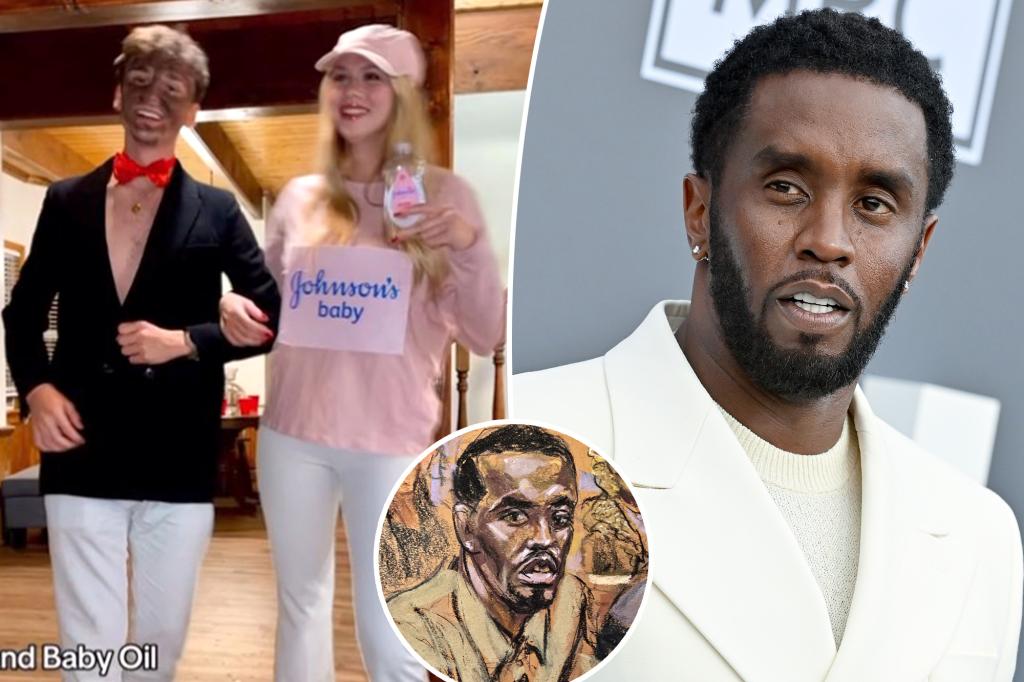This Halloween season, several college students faced backlash after dressing in offensive costumes, including blackface, to imitate rapper Sean “Diddy” Combs. The original TikTok video and social media posts showcasing the costumes received millions of views before being deleted. In the video, a caucasian couple is seen dressed as Diddy and holding up a sign referring to a federal raid that found bottles of lube and baby oil in the rapper’s home. The couple’s choice of costume was widely criticized online for its insensitivity and cultural disrespect.
In addition to the Diddy costumes, the group of college students were also dressed as characters from “Toy Story” and “101 Dalmatians.” Viewers expressed disbelief and condemnation at the offensive choice of using blackface in the Diddy costume, with many calling it inappropriate and lazy. The identities of the couple in the costumes were not revealed, although the woman who originally shared the video is reportedly a student at San Diego State University. Criticism of the costume prompted viewers to contact the university to address the situation, with the school’s spokesperson acknowledging the offensiveness of blackface and insensitivity to sexual assault.
This incident is just one of many cases where individuals have faced backlash for wearing blackface or engaging in culturally insensitive behavior during Halloween. Recently, freshman GOP Rep. Mike Lawler apologized after photos of him in blackface imitating Michael Jackson at a Halloween party were reported by the New York Times. These instances highlight the ongoing issue of people appropriating other cultures for Halloween costumes in a manner that is offensive and disrespectful. The use of blackface is particularly troubling as it carries a long history of racist symbolism and contributes to harmful stereotypes.
Social media users expressed outrage and disappointment at the Diddy costumes, with many calling out the individuals for their insensitivity and ignorance. Critics emphasized the importance of understanding the historical and cultural significance of blackface and its racist connotations. The controversy surrounding the costumes serves as a reminder of the need for education and awareness around issues of race and cultural appropriation, especially during Halloween where offensive costumes can perpetuate harmful stereotypes and cause harm to marginalized communities.
Ultimately, the Diddy costumes and the backlash they received highlight the ongoing challenges around cultural sensitivity and awareness. The incident at San Diego State University underscores the need for greater education and understanding of the historical implications of blackface and the impact of offensive costumes. Moving forward, it is essential for individuals to be mindful of the harmful effects of cultural appropriation and to make respectful and informed choices when selecting Halloween costumes. Through dialogue and education, we can work towards creating a more inclusive and respectful environment for all.


